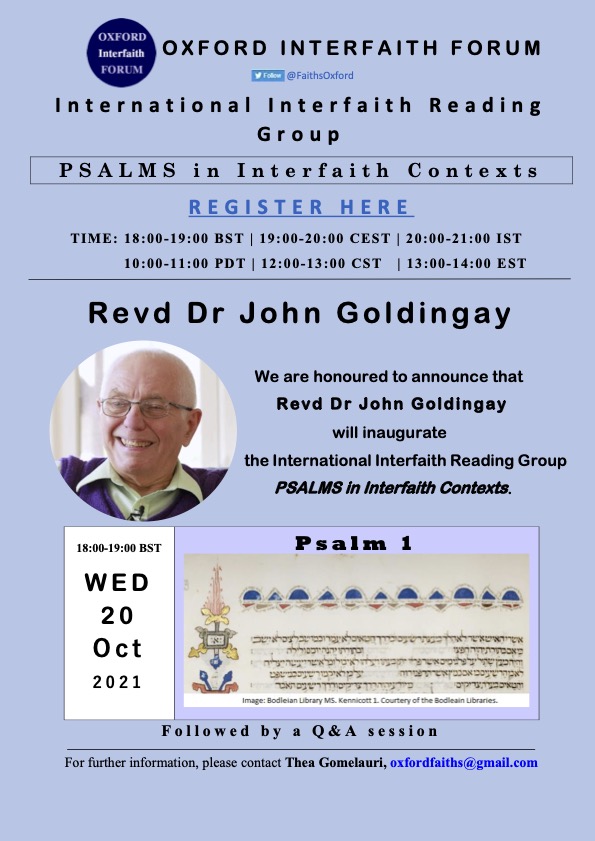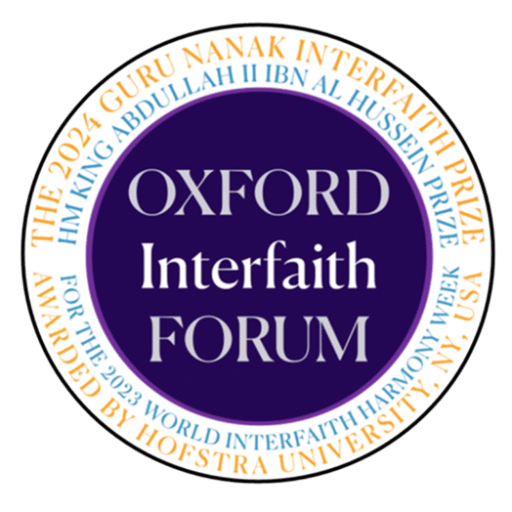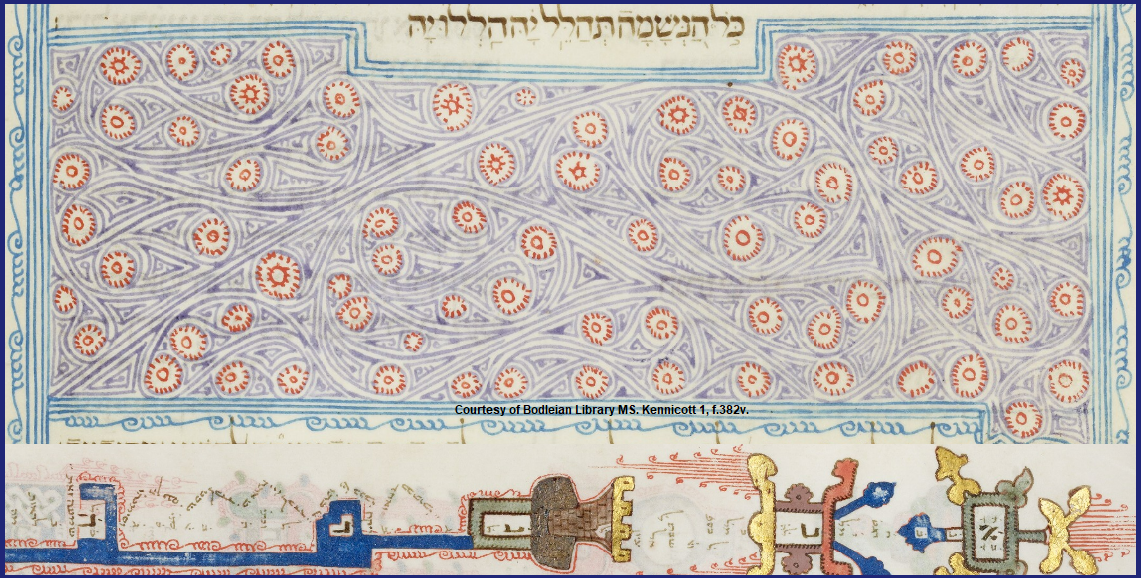We are pleased to announce the launch of an international Reading Group on Psalms in Interfaith Contexts which will explore these prayer-poems-songs from a multifaith and multidisciplinary perspective.
The Book of Psalms/the Zabur/Sefer Tehillim is among the most popular and widely read of all the books of the Bible. There is no human emotion and mood which is not represented in Psalms. Their resonance transcends time and geographical space. During the global crisis, this ancient book has received fresh attention from an international and interfaith network of artists, clergy, activists, teachers, and scholars. The aims of the Reading Group will include exploring Psalms as a source of solace and inspiration and reflecting on their role in human wellbeing, including mental health issues, and discussing how they invite worshippers to relate to God.
The Group will meet once a month via Zoom for an hour to discuss a specific passage from Psalm(s) and its application in various contexts. An invited speaker would introduce and read a text circulated previously to the members of the Reading Group. An open discussion will follow the presentation.
The Reading Group is open to anyone, and we invite you to register your initial interest below.
International Interfaith Advisory Board
Professor Ellen Davis, Amos Ragan Kearns Distinguished Professor of Bible and Practical Theology, Duke Divinity School, NC, USA
Professor Eitan Fishbane, Associate Professor of Jewish Thought, the Jewish Theological Seminary, NY, USA
Revd Dr. John Goldingay, the David Allan Hubbard Professor Emeritus of Old Testament, Fuller Theological Seminary, CA, USA
Rabbi Dr Shai Held, President and Dean of Hadar Institute, NY, USA
Ustadha Yomna Helmy, Prince Alwaleed Bin Talal Centre of Islamic Studies, University of Cambridge, UK
Professor Joel Kaminsky, Morningstar Professor of Jewish Studies and Professor of Religion, Smith College, MA, USA
Revd Dr. Federico Villanueva, Professor of Biblical Theology, Loyola School of Theology, Philippines
Related Events
- Illuminating The Psalms: 29, 92, and 96, in Many Moments
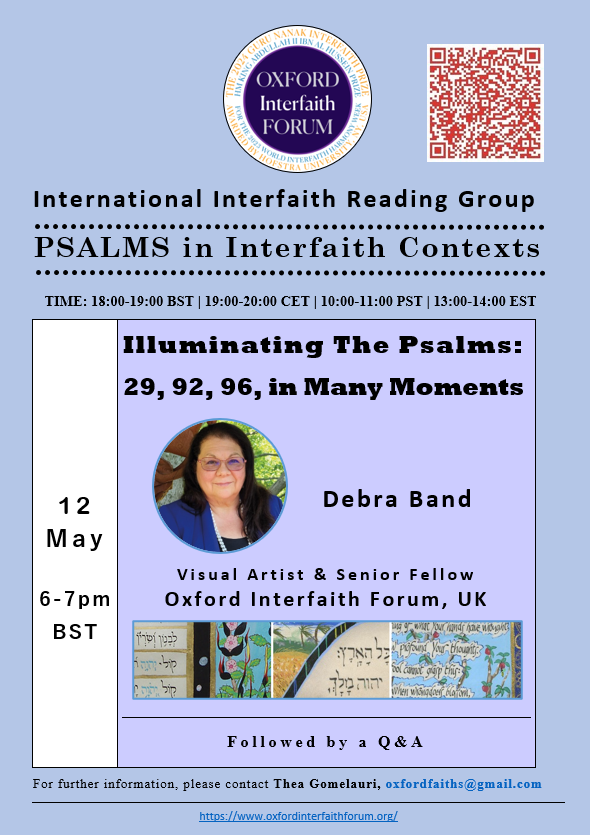
- Psalm 136: Hesed as Praxis
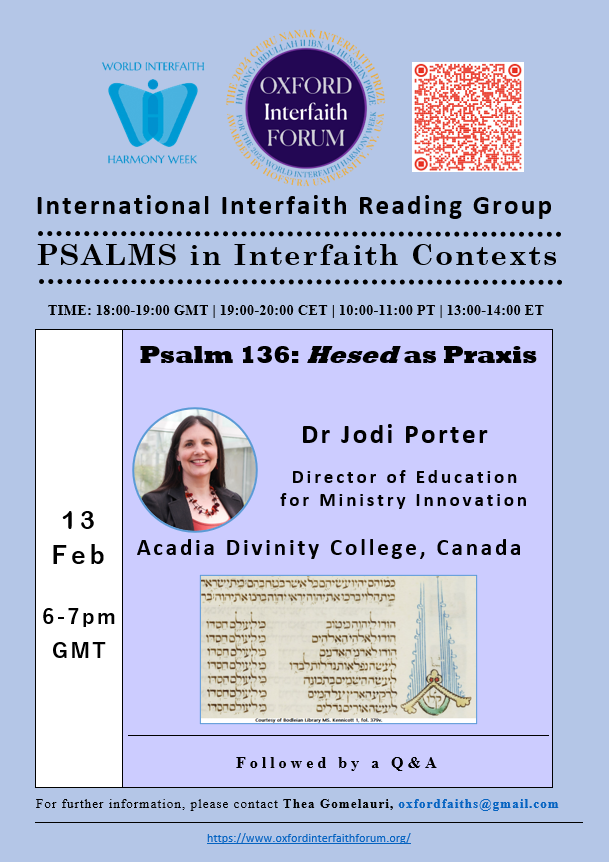
- Was Genesis 1 Dependent on Psalm 104?
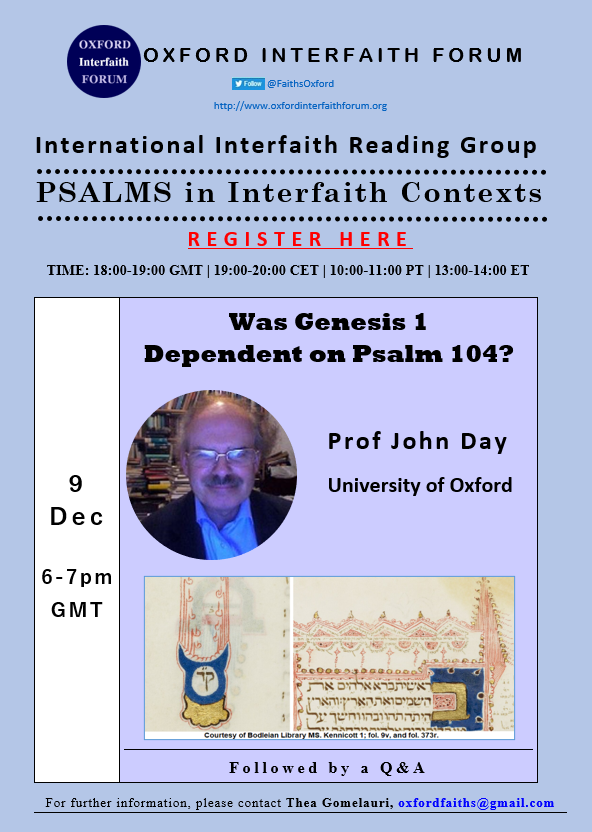
- The Seven Penitential Psalms in the Allegorist’s Hands
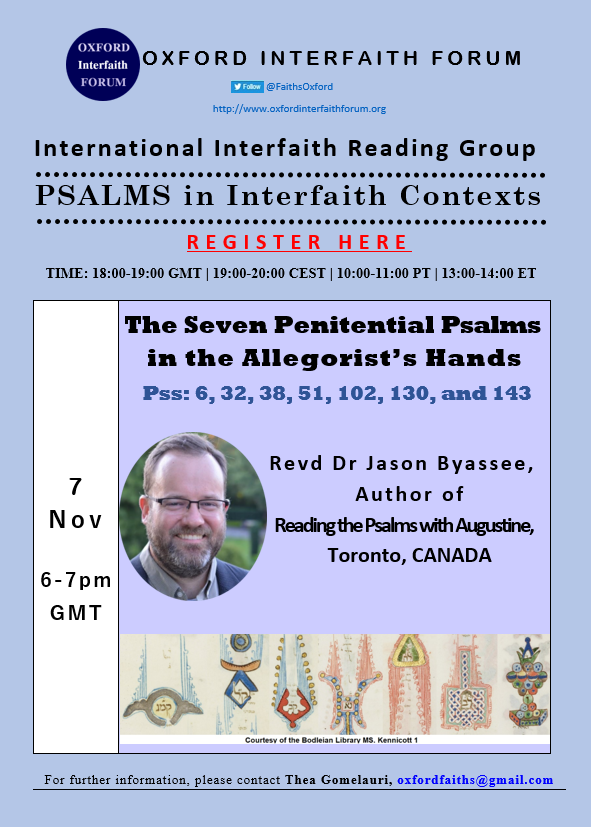
- Beyond Exegesis: The Psalm Cultures of Ancient Jews and Early Christians
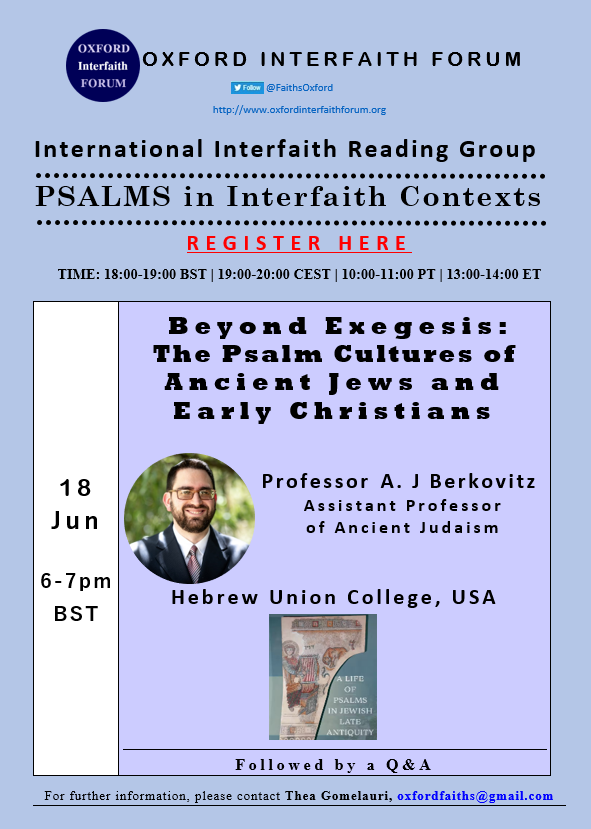
- Psalm 40 and Messiness of Prayer
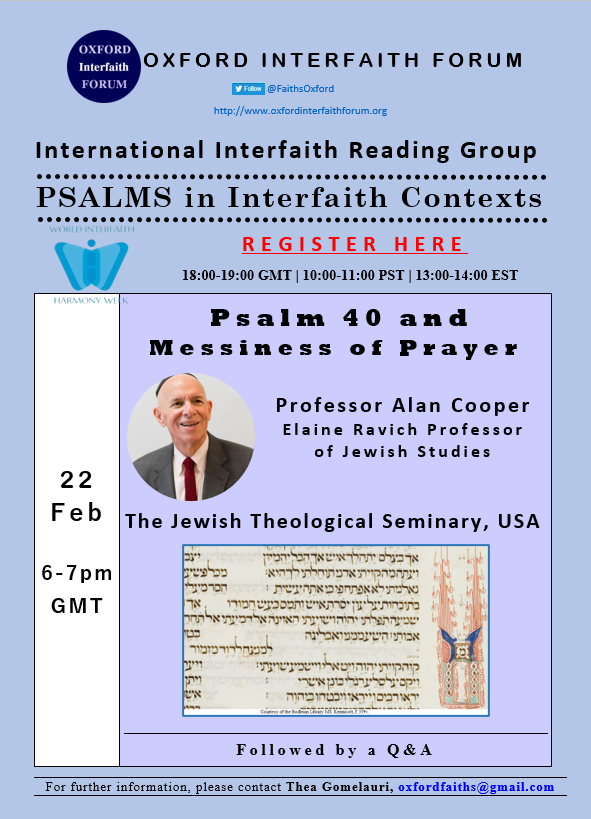
- Psalm 109: The Prayer No One Wants
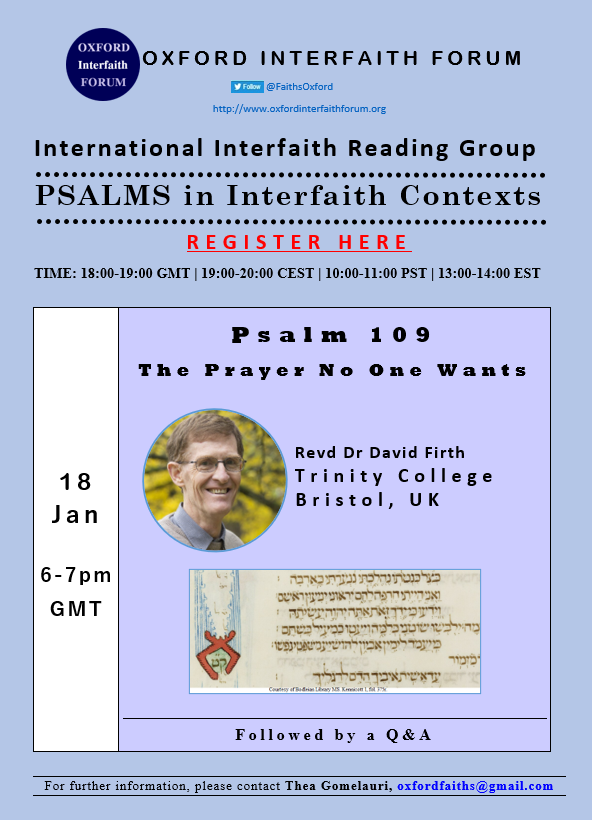
- Psalmody as an Alternative to Theodicy
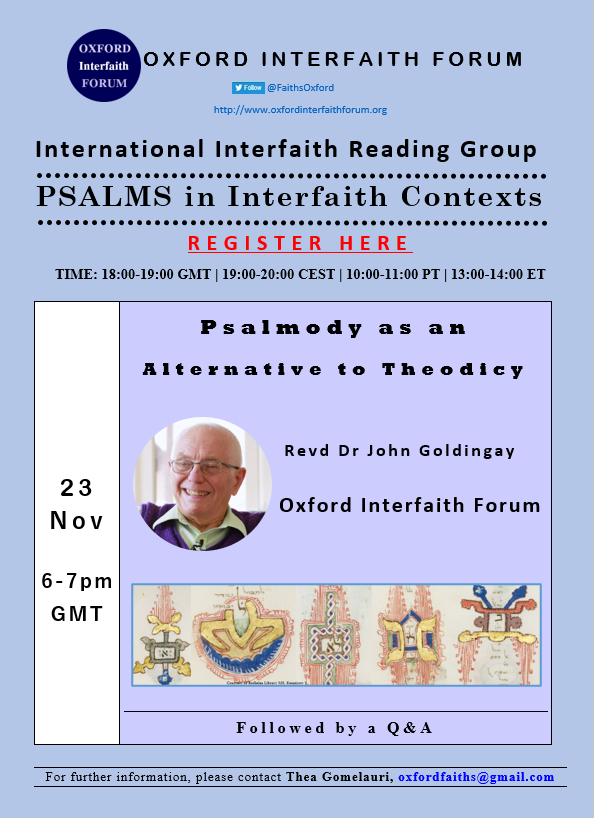
- Psalm 44 and the Book of Job: God on Trial
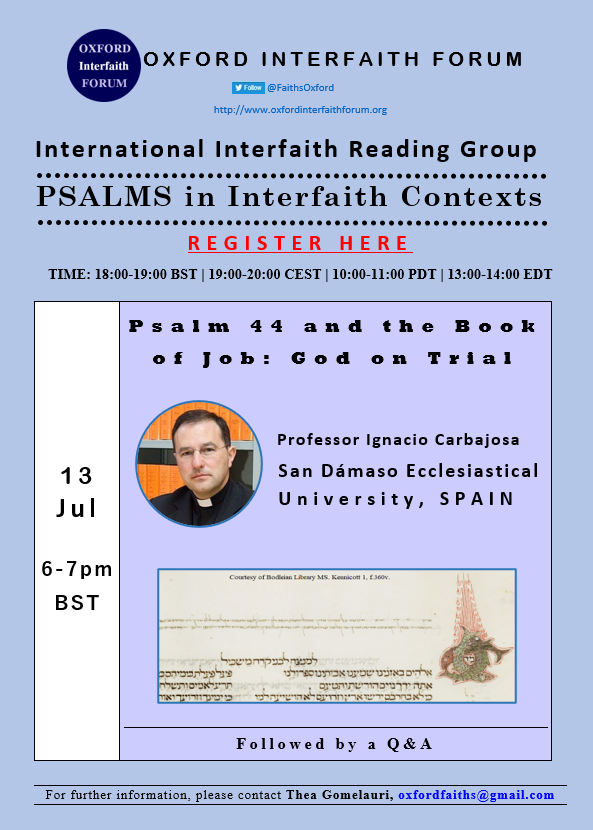
- Exile and Restoration in the Psalms
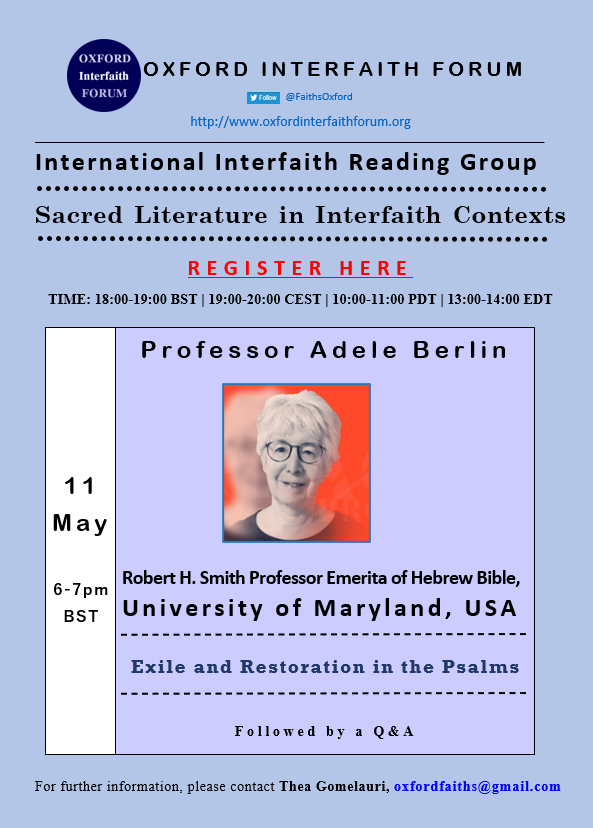
- ‘Deep cries unto deep’: Julian of Norwich and Psalm 42
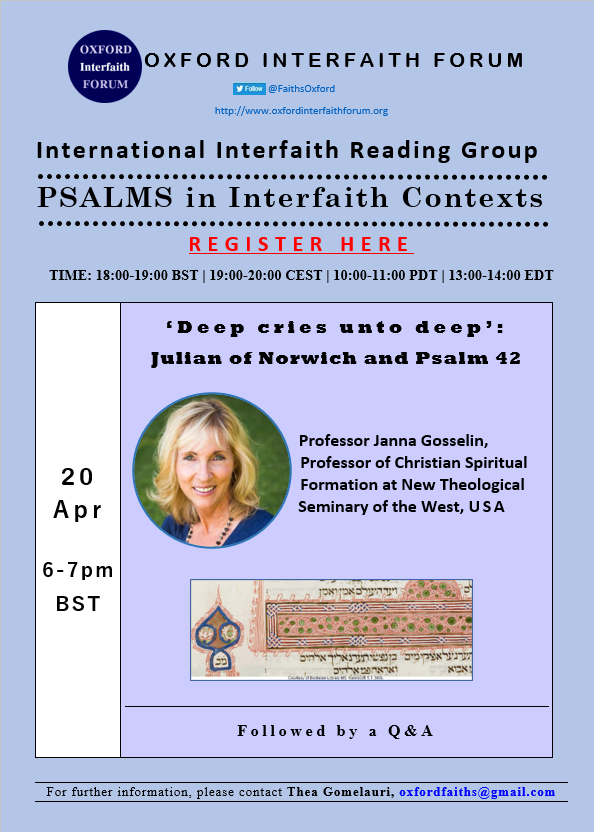
- Ancient Versions of Psalms in Dialogue: Psalms 49 and 104
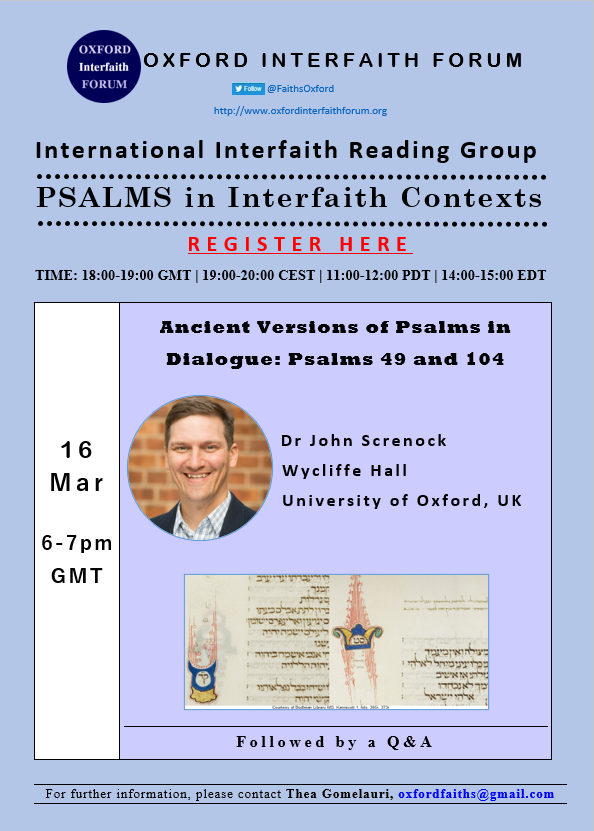
- Awake, My Soul! Psalms: 44; 57; 133; 143
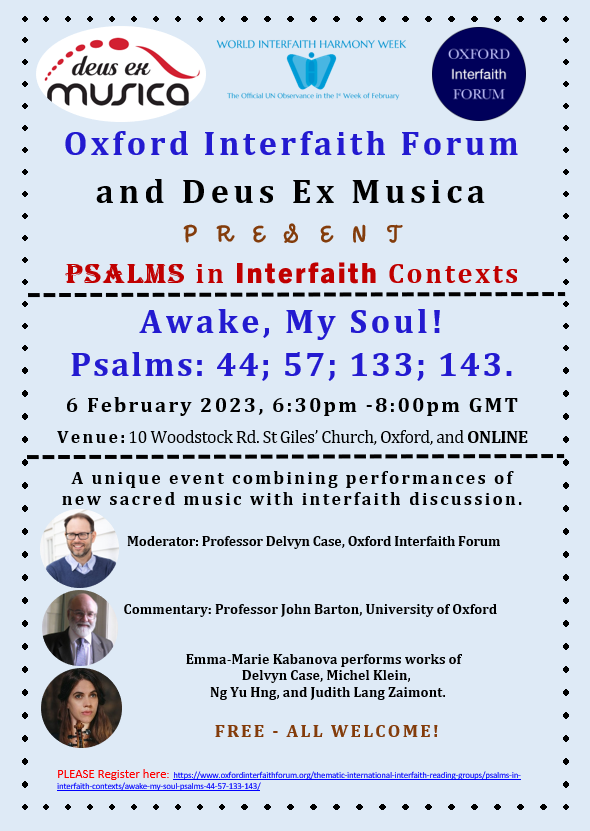
- Psalm 106: Fall of Jerusalem and Lamentations Ch. 3
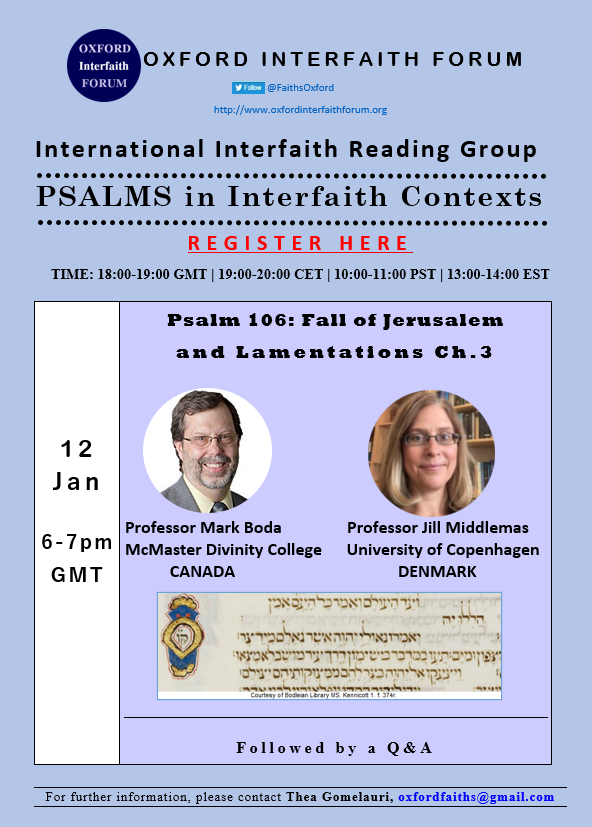
- Psalm 37:25, Innocent Suffering, and Divine Recompense
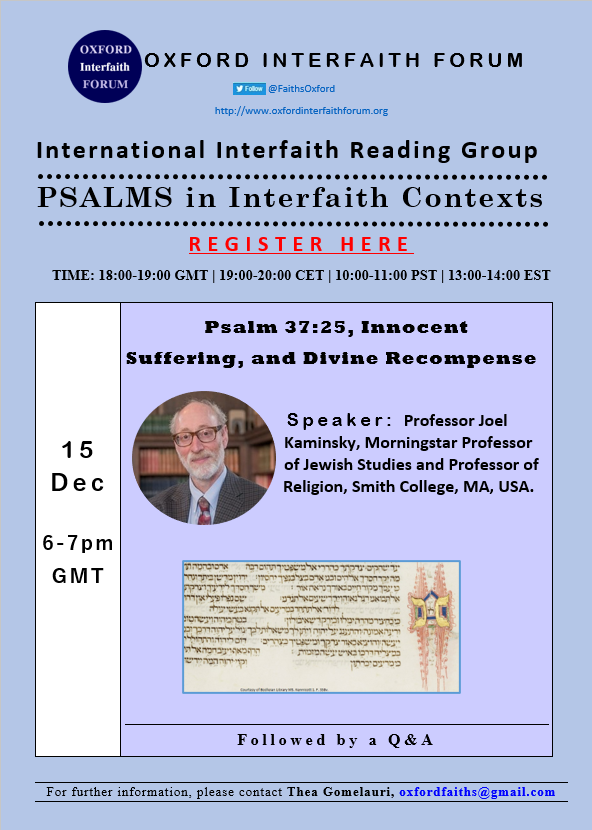
- Spurring Colonialism and Slavery: Protestants and Catholics United in their Use of Psalm 132
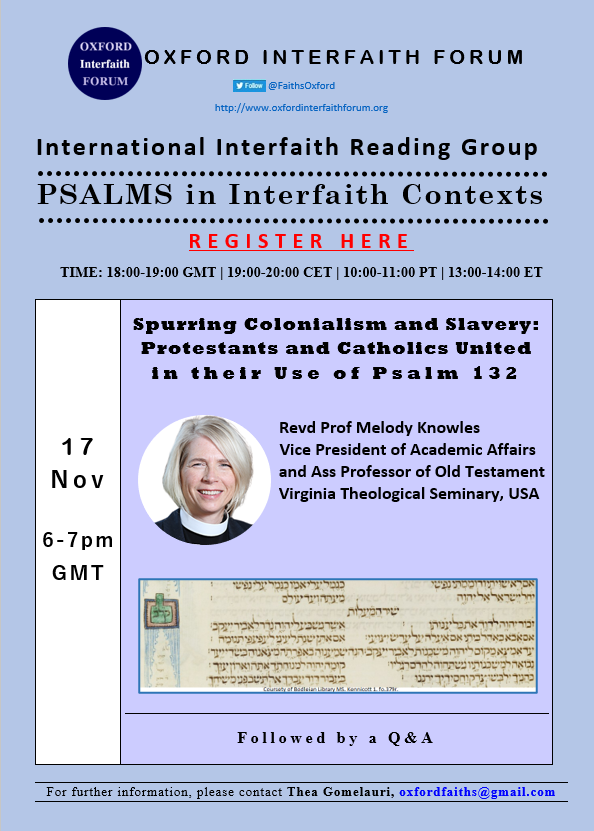
- Midrash Tehillim on Psalm 24
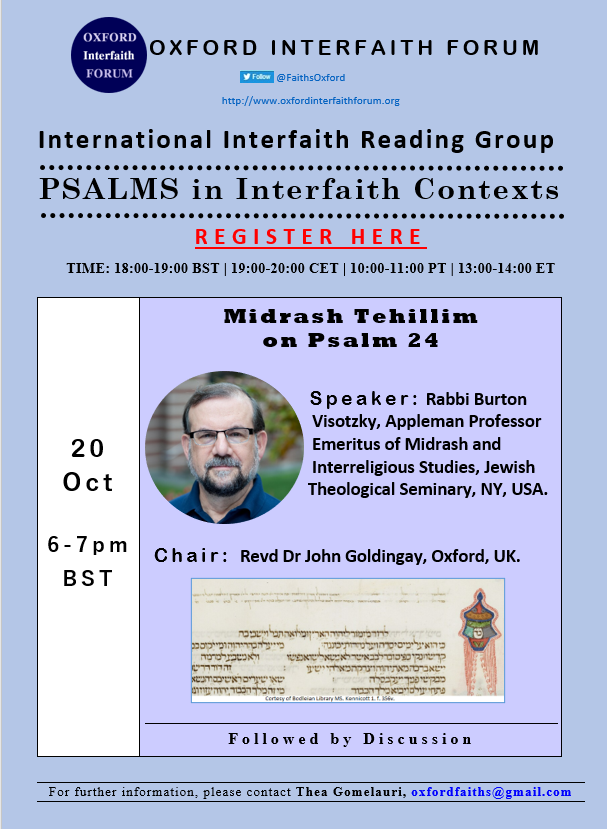
- Psalm 19: Muslim Reflections on Creation
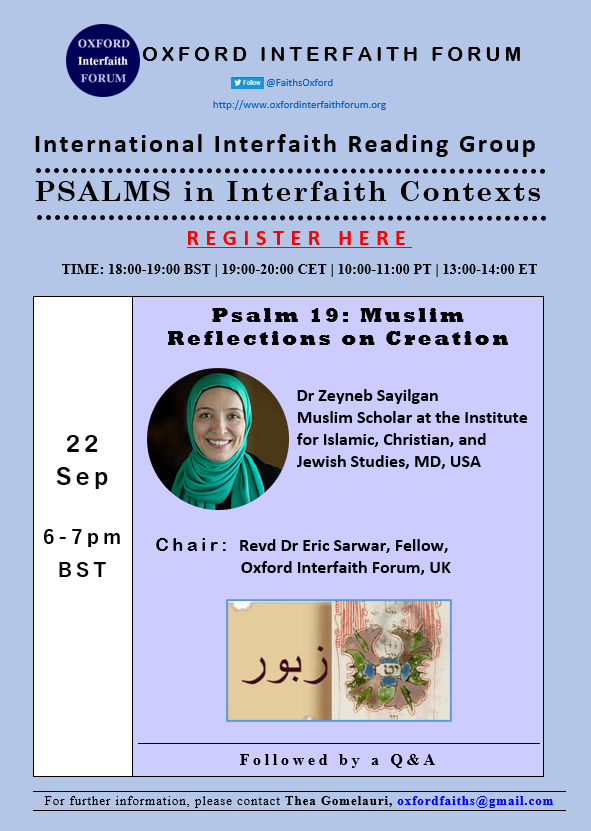
- Psalm 46: Singing in Hope and Defiance
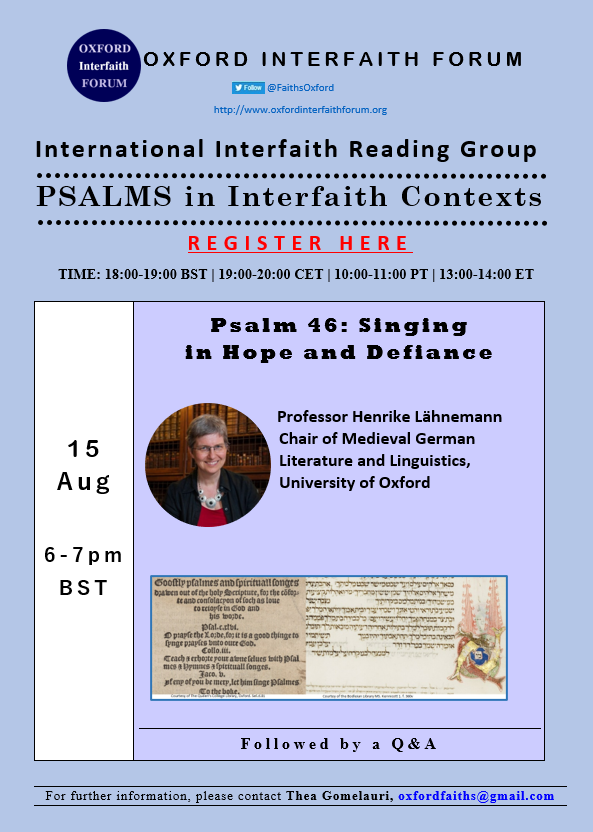
- When Music Meets Psalms: Psalm 130
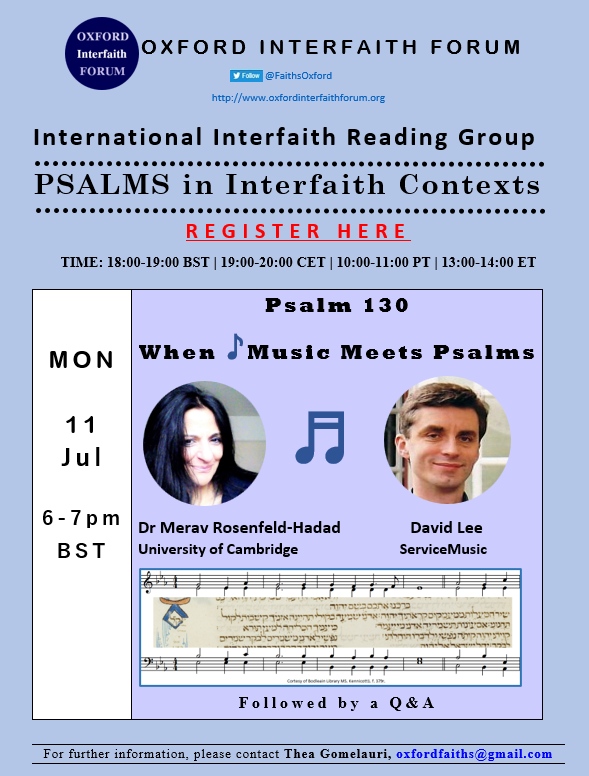
- Psalm 131: How I Weaned Myself from the Breast of God
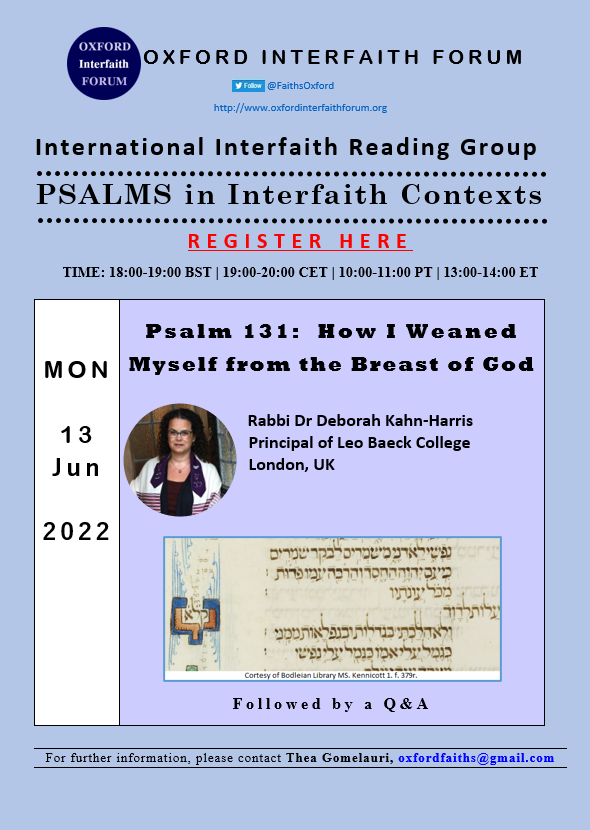
- Psalm 132: A Song of Ascents
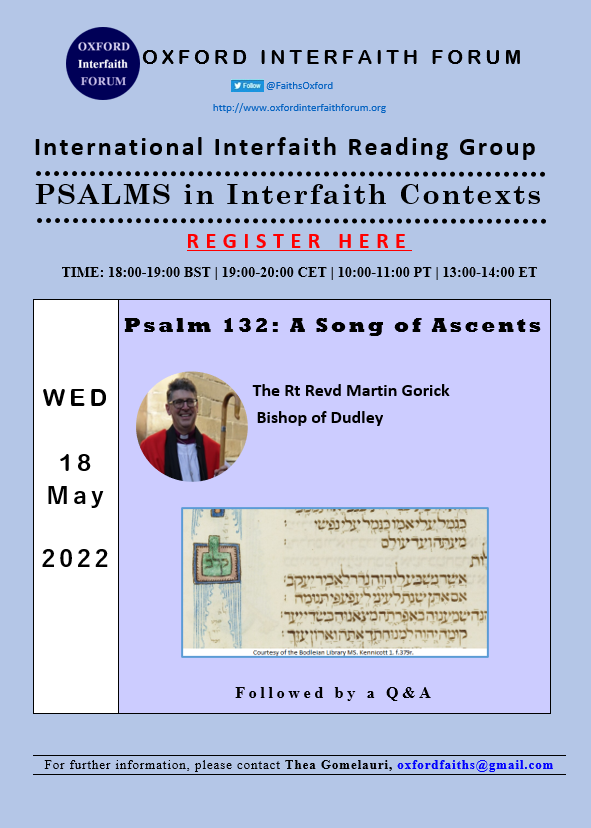
- Psalm 88: ‘Fists Flailing at the Gates of Heaven’
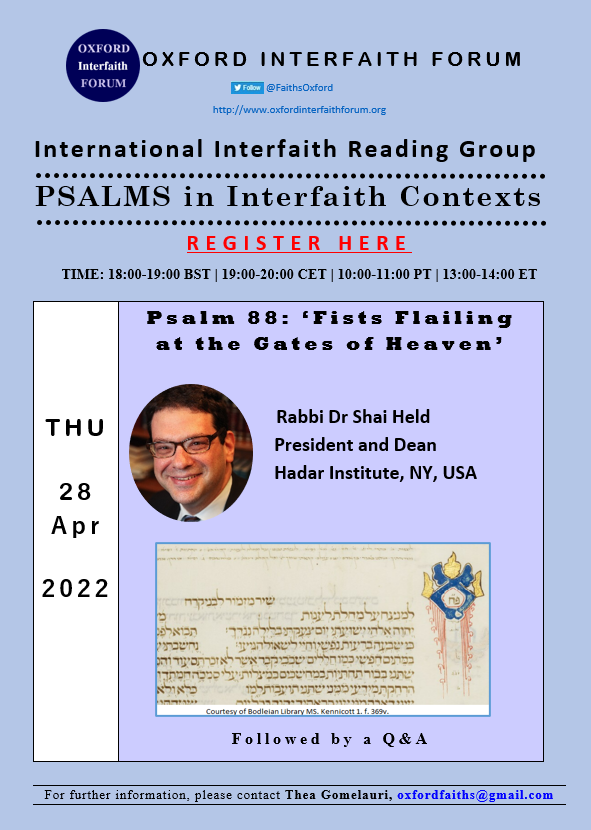
- Psalm 82: Demanding Justice
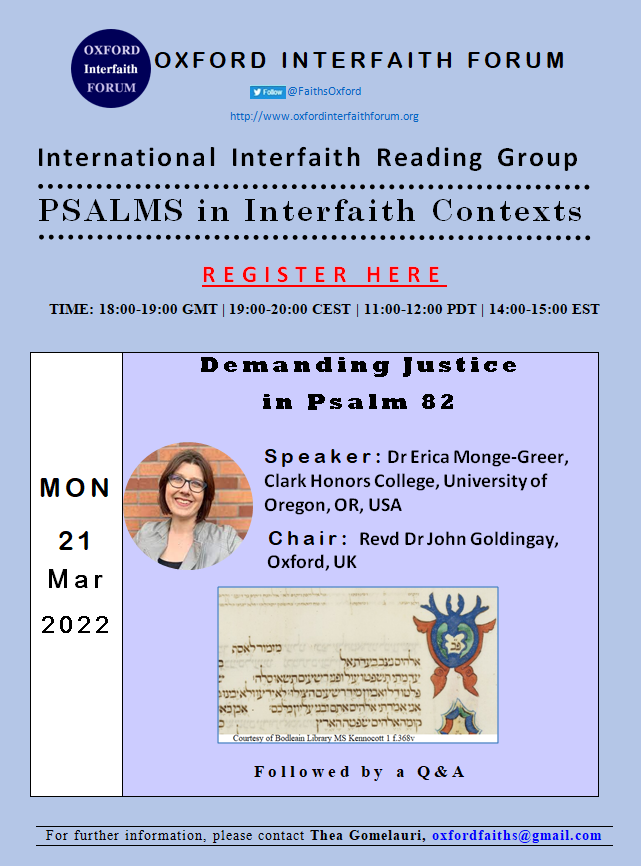
- Psalm 51: Contemporary Multifaith Interpretations
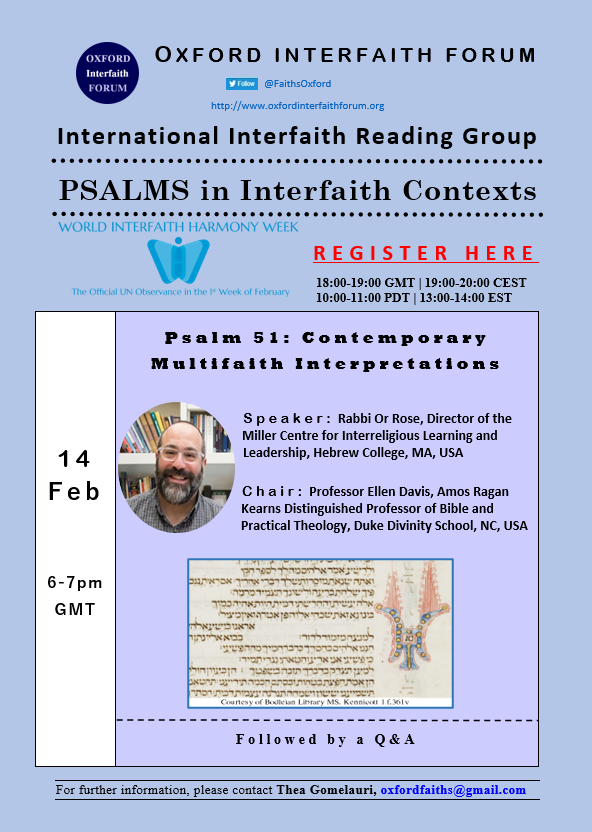
- Comparative Reading of Psalms and Abrahams’ Prayers in the Quran
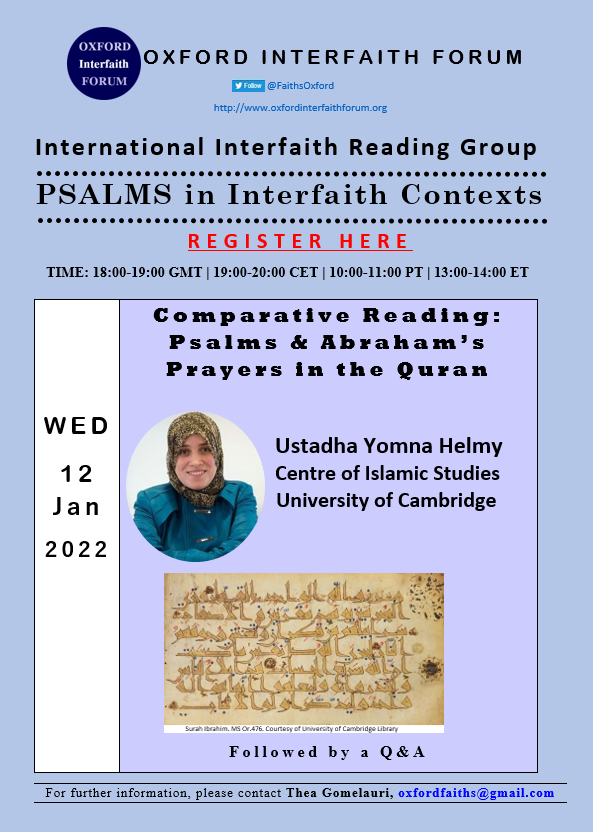
- Psalm 33: Mystical Reading
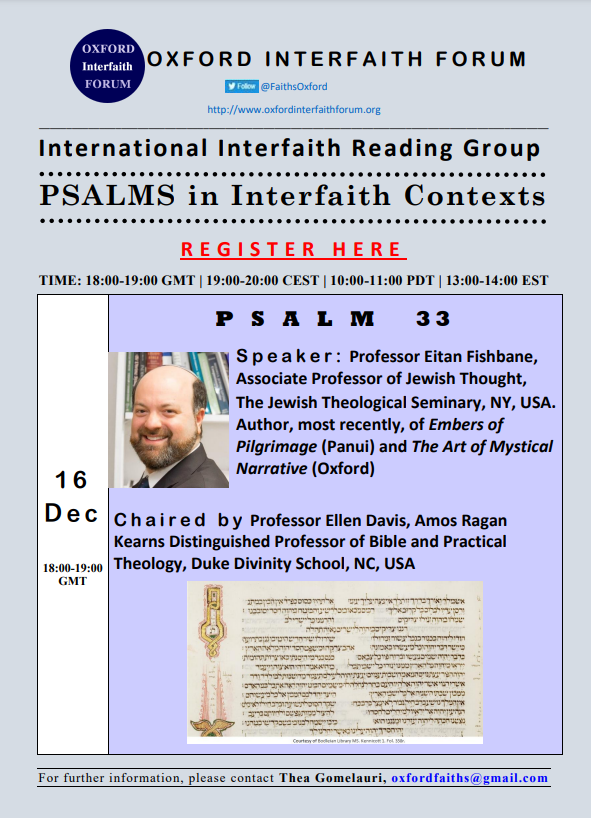
- Psalm 139
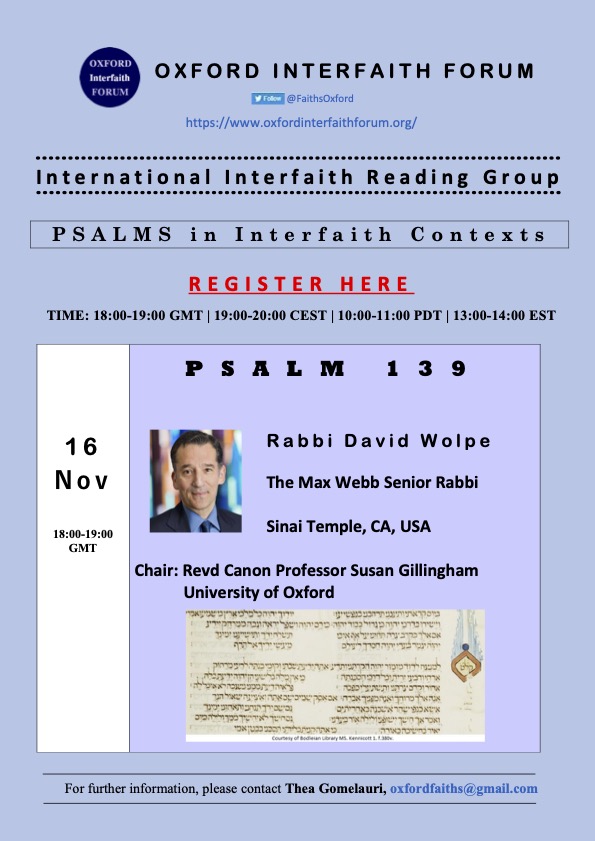
- Psalm 1: Inaugural Session by Revd Dr John Goldingay
